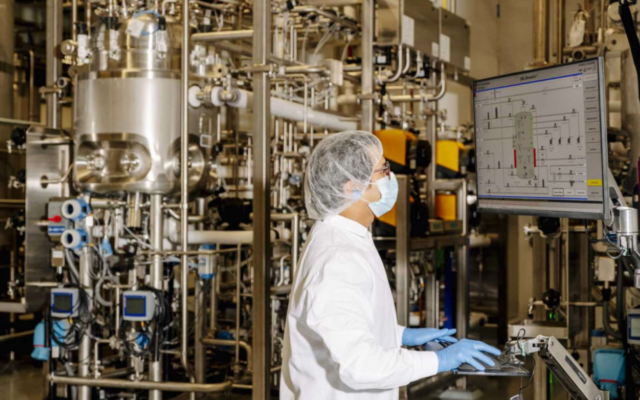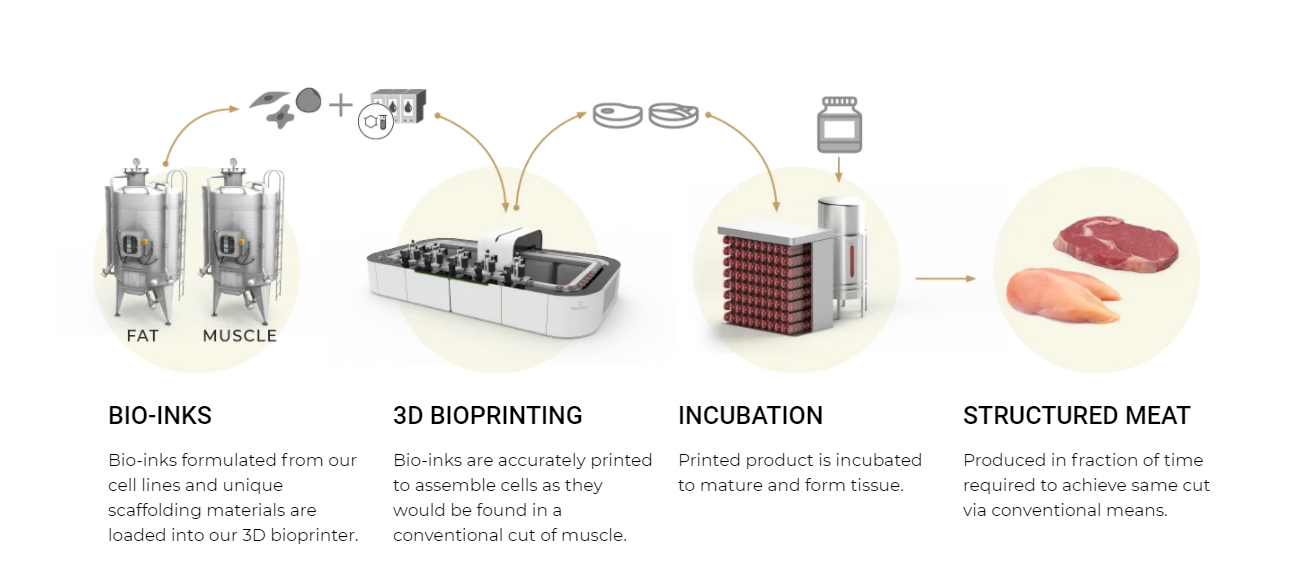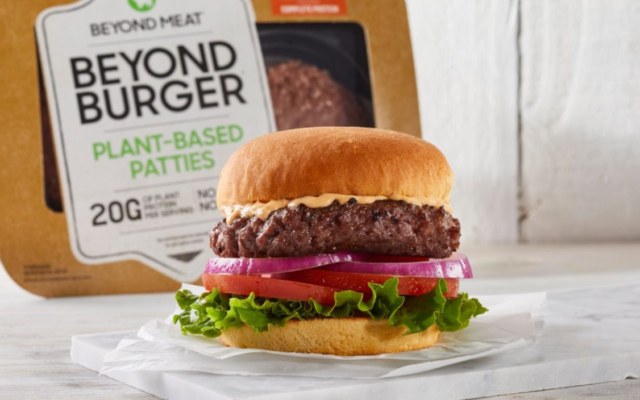The Future of Meat
New techniques for producing real meat in a lab without much help from cows and chickens is moving closer to reality.

The next innovation in food technology is not the protein source that comes from factory farms or commercial feed lots, nor is it a meat substitute concocted from a slurry of vegan pea protein, soy, canola oil and vitamin supplements, formed into breakfast patties that mimic sausage and sold in a package with a Kosher hechsher.
No, what is coming, perhaps even before the end of this year, is genuine animal protein, grown in a large-scale laboratory, from animal cells that have never seen the inside or the outside of a slaughterhouse.
In Emeryville, Calif., a $50-million, 54,009-square-foot plant produces what’s called cultivated or lab-grown meat at a competitive price. Upside Foods has perfected this process over the last six years and is now ready to start producing 400,000 lbs. of their first product, chicken, once the Food and Drug Administration gives it the ok. Some predict that approval could come before the end of 2022.

The Chief Operating Officer of the new company, Amy Chen, told the San Francisco Chronicle that “it’s not a dream. It’s not science fiction. It’s reality today.”
Upside Foods, which has raised investment funds from some heavy hitters like Bill Gates and Sir Richard Branson, see it as something that might lead to better health and a lighter impact on the environment than big meat producers like Cargill and Tyson Foods.
Although the California firm is the first cultivated meat company in the world, others are not too far behind. There’s Most Meat, founded by a scientist who created the first lab-produced beef burger eight years ago. And in 2020, an American company, Eat Just, produced a batch of lab-grown chicken nuggets that were approved for sale in Singapore.
Last month, the Israeli firm MeaTech 3D created what’s been described as the largest steak ever grown in a lab. Its 4-oz. filet is said to be real muscle and fat cells taken from animals, combined with stem cells and what are called “bio-inks” and printed on a 3-D printer.
MeaTech CEO Sharon Fima told The Guardian that the company was committed to producing meat that was competitively priced and full-flavored.

“The breakthrough is the culmination of over one year’s effort in our cellular biology and high-throughput tissue engineering process as weak as our precision bioprinting technology. We believe we have placed ourselves at the forefront of the race to develop high-end, cell-based meat products,” Fima said.
One of the factors driving the sudden interest in alternative meat products is the rise of what one study called “flextarians,” people who still eat some meat but are interested in buying products that imitate animal proteins while being kinder to the environment. An estimated 100 million people in the U.S. now describe themselves that way. It’s also possible that the growth of meat substitutes may also help to simplify the observance of kashrut.
A study by Deloitte projected that the growth of plant-based products and other meat substitutes could put the value of the industry at $85 billion by 2030.
More conventional plant-based meat products are also gaining acceptance. McDonald’s unveiled its first plant-based burger, the McPlant, in the U.K. and Ireland this month. The fast-food menu already features a Spicy Veggie One wrap and Veggie Dippers, while the burger comes with slices of cheese made from pea protein.

McDonald’s tested the new burger in at least eight American locations and apparently sold enough for Wall Street financial analysts to project that the fast-food chain was planning a major expansion of its plant-based options.
You could see McPlant burgers in as many as 700 U.S. locations in February and March, with a national marketing push to all 13,500 locations later this year.
Last summer, Beyond Meat, the supplier of the McDonald’s plant-based burger, announced that it would be expanding its offerings of plant-based chicken, which it has been producing for the past 9 years. Its new Beyond Meat Tenders are made from — what else? — fava beans.



comments